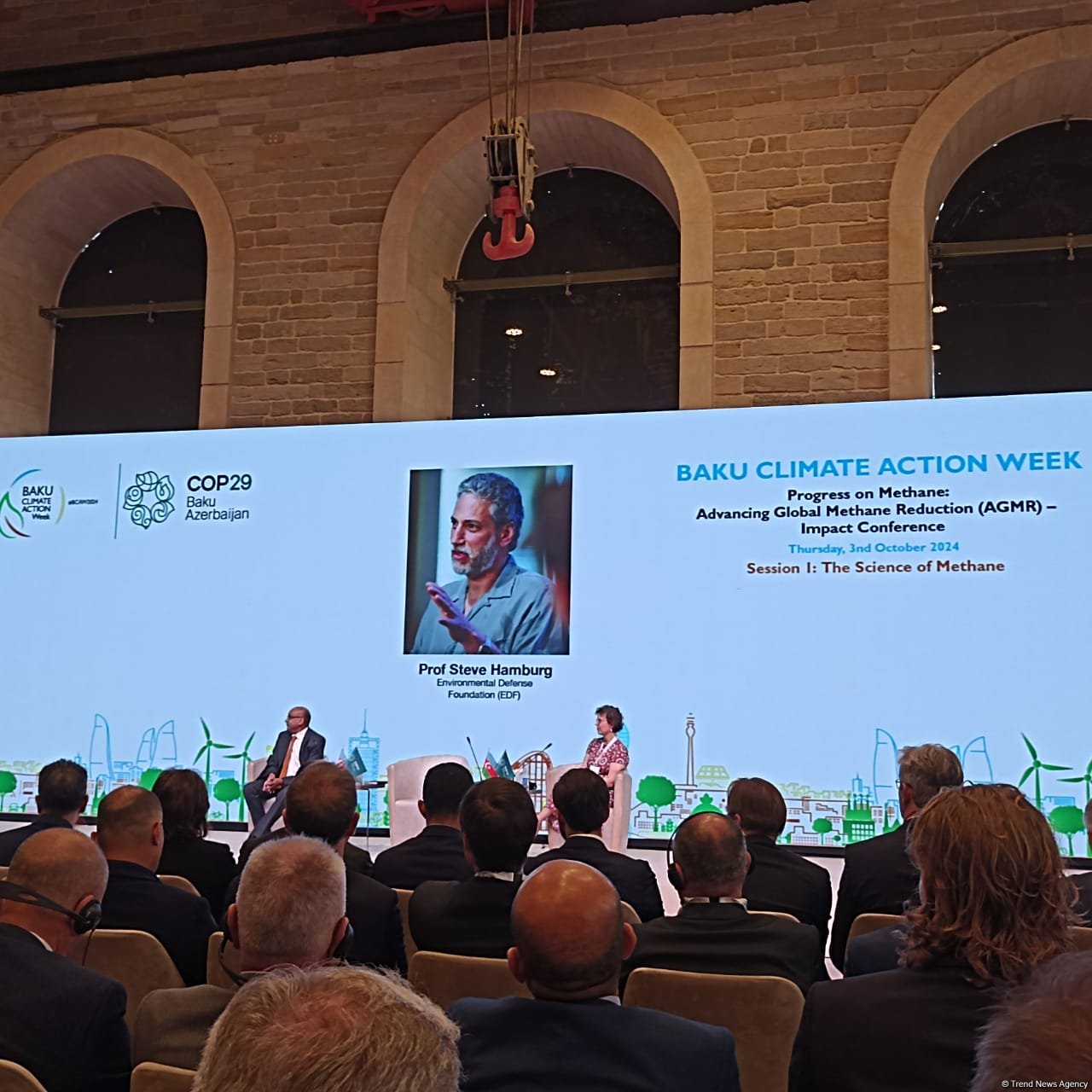BAKU, Azerbaijan, October 3. The conference “Progress on Methane: Advancing Global Methane Reduction (AGMR)” under the umbrella of "Climate Action Week" has taken place in Baku, Trend reports.
The speakers included Deputy Minister of Ecology and Natural Resources of Azerbaijan Umayra Taghiyeva, Vice President of the State Oil Company of Azerbaijan (SOCAR) Afgan Isayev, bp Vice President for Communications and External Affairs in the Caspian Region Bakhtiyar Aslanbayli, international and Azerbaijani experts, as well as representatives of international organizations.
Taghiyeva said that in the previous 20 years, methane emissions have contributed 80 times more to atmospheric and environmental pollution than carbon dioxide.
According to her, the nations have come together to tackle the issue of methane emissions, aiming to cut industrial waste by a significant 30-35 percent by the year 2030.
“A distinct day will be allocated to the subject of methane at COP29,” Taghiyeva emphasized.
She also mentioned that the matter of climate change is at the top of Azerbaijan's to-do list, and the nation is keeping its nose to the grindstone on this front at every level.
Aslanbayli said that bp and SOCAR are working together on technology and reporting on methane emissions.
According to him, bp has been actively using new sensors and drones to monitor possible methane emissions at its offshore and onshore facilities in Azerbaijan since 2024 and will continue working in this direction.
Aslanbayli also emphasized that working hand in hand with SOCAR on the green energy transition is bearing fruit.
Isayev said that SOCAR plans to make more use of artificial intelligence to track methane emissions, work out data, and manage the process of reducing methane emissions.
He pointed out that the company keeps its finger on the pulse of emissions to fine-tune the decarbonization process.
“We analyze satellite imagery to identify methane leaks. We have commenced employing ground measurement techniques, engaging competent firms. We are collaborating with them to develop an artificial intelligence tool aimed at optimizing our efforts to combat methane emissions,” he explained.
Isayev reminded that in December 2023, SOCAR became a signatory to the international charter on decarbonization, which outlines a staged approach to decarbonization for the years 2030, 2035, and 2050, with the objective of achieving zero greenhouse gas emissions by 2050.
“We can reach 0.2 percent of emissions intensity for methane in 2035, and we are actively working for this result,” he emphasized.
To note, the greenhouse effect from methane emissions packs a punch, being 28–30 times mightier than that of carbon dioxide. The primary culprits behind methane emissions are the oil and gas sector, along with the agricultural field. During the upcoming COP29 in Baku, a declaration on methane will be adopted.
Azerbaijan also initiated the adoption of a document to reduce organic methane emissions.
Stay up-to-date with more news on Trend News Agency's WhatsApp channel







